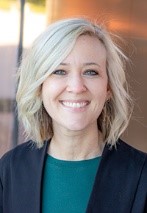Some students have no difficulty when it comes to choosing a degree program. They have already decided on their profession. But many others feel uncertain about the path they want to follow and even unsure about where to start. For those who are less certain about a profession, it is helpful to make an honest assessment of talents as well as investigate the salaries, job outlook, and quality of life associated with different careers.
Fortunately, students have plenty of options when it comes to finding a degree program that aligns with their career plans. Online education has freed students from the restrictions of geography, allowing them to enroll in a degree program with any school that offers online programs. Still, deciding between those options can prove challenging.
A quick way to jump-start a career search is to look through a college program catalog and see the type of courses are required for different majors. Excelsior College offers online academic program catalogs that include course descriptions for undergraduate degrees in business, health sciences, liberal arts, nursing, public service, and technology.
Reviewing a program catalog is a smart first step for those at the beginning stages of choosing which degree to earn.
Factors to Consider When Choosing a Degree
Most students start their higher education journey with a simple question: “What college degree should I get?” This question is not always easy to answer, but the following tips can prove helpful in reaching a decision.
What Are Your Talents?
A career search must start with an honest assessment of your talents. It’s also important to choose a degree that offers the chance to improve skills in an area of interest. Passion for the career is also critical and will keep you focused on completing your degree when faced with challenging course material.
Career Pay
The potential salary for a specific career should not become the sole factor for choosing a degree program. Few people enjoy working at jobs they don’t like even if they make a great deal of money. However, it’s important to set expectations for what your potential career will pay. Check with the U.S. Bureau of Labor Statistics (BLS), the official source for salaries in the United States.
Career Outlook
Another important factor is the outlook for future job growth. This is especially important as technology continues to rapidly change the workforce. The BLS provides projections in this area. Some of the jobs expected to grow the fastest include nursing, software developer, general operations manager, financial manager, and management analyst.
Quality of Life
This area is more difficult to quantify. Everyone has their own opinion about the type of life they would like to live. For some, the long hours of a business entrepreneur sound fine. For others, a schedule that allows more time for family, friends, and relaxation is better. This is a very personal decision, but it helps to talk with people who currently work in a field you are considering so you can better understand the life they lead.
Earning an Associate Degree
Deciding on a lifelong career is difficult to do at a young age. Even working adults may not yet know exactly what they want to do. An option that makes sense for many is to first earn a two-year associate degree before moving on to complete a bachelor’s degree.
Excelsior College officials know that an associate degree can offer a great stepping stone for students who remain unsure of their full-time career choice. By earning an associate degree online, they knock out many of the general education requirements found in almost every academic program.
Those include general education requirements in English, Ethics, Humanities, Social Sciences/History, Natural Sciences, Mathematics, Arts & Sciences electives, and Information Literacy.
By taking their time to carefully consider all options, potential students can eventually choose a degree and arrive at a solid choice for a career field. Whether they start with an associate degree or move immediately into a bachelor’s program, the options offered through online learning increase the chances they will choose a degree program that suits them best. Learn more about Excelsior College’s Associate in Nursing Degree.
 A formal education can help individuals in administrative support roles. As technology continues to change with work, keeping attuned to software and efficiency systems can help both individuals and an organization optimize performance and improve efficiency. A business education can help lead to career opportunities and job security.
A formal education can help individuals in administrative support roles. As technology continues to change with work, keeping attuned to software and efficiency systems can help both individuals and an organization optimize performance and improve efficiency. A business education can help lead to career opportunities and job security. Rachel Reynolds Suman, certification and programs director at IAAP, said, “IAAP is committed to elevating the administrative profession through certification, community-building, and leadership development. We are thrilled to have found a partner in Excelsior College that will result in three primary benefits. First,
Rachel Reynolds Suman, certification and programs director at IAAP, said, “IAAP is committed to elevating the administrative profession through certification, community-building, and leadership development. We are thrilled to have found a partner in Excelsior College that will result in three primary benefits. First,